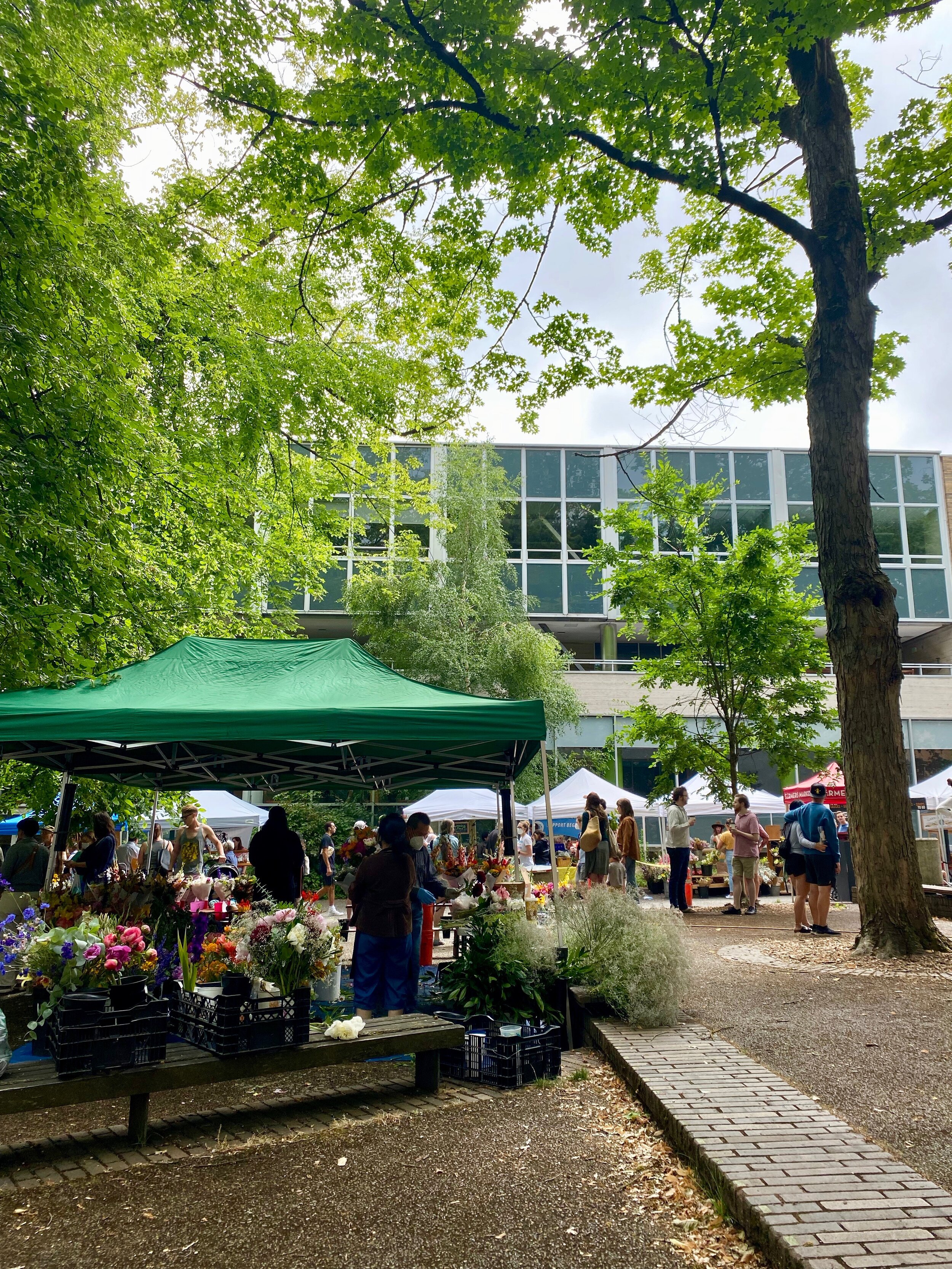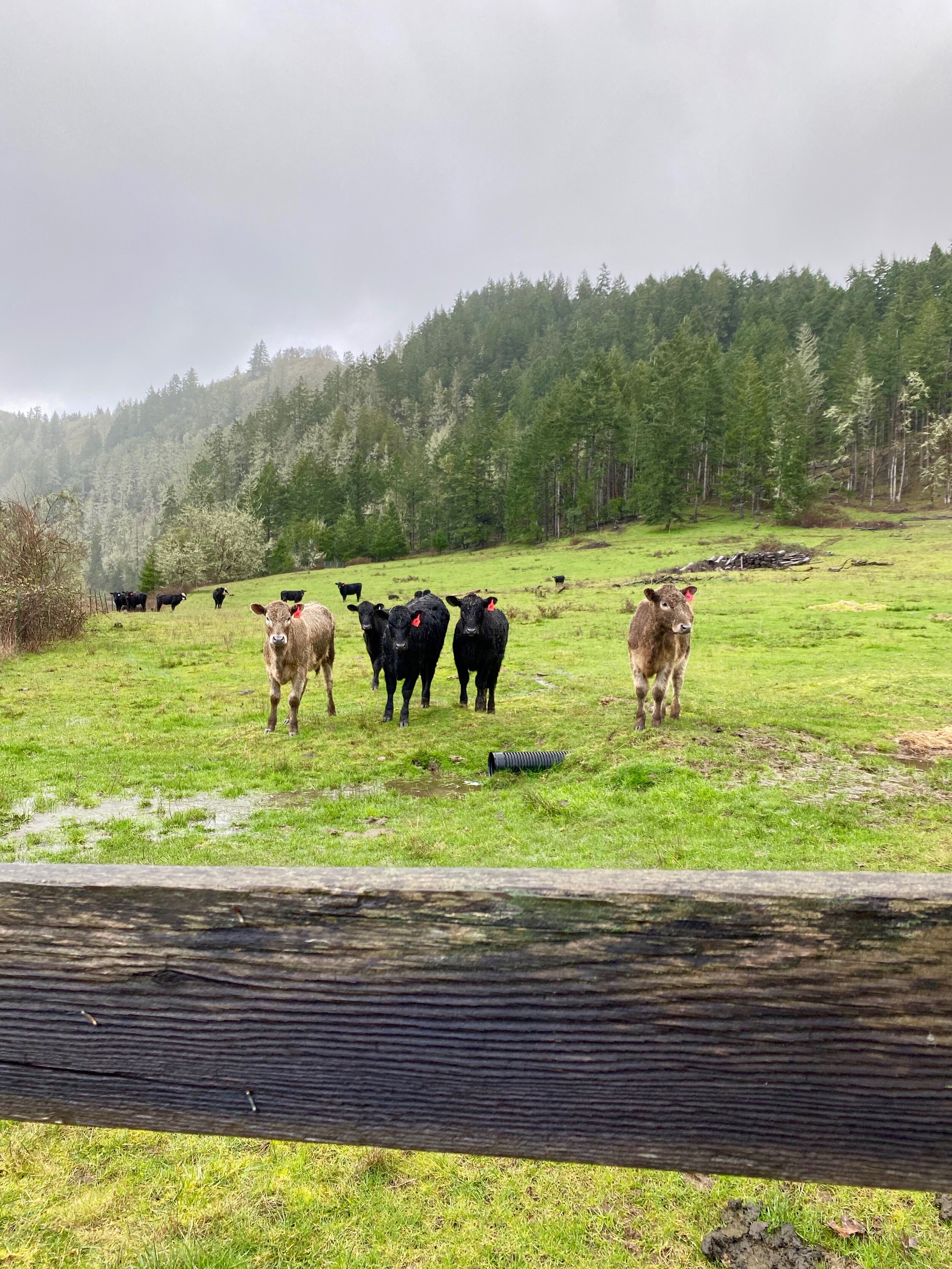
Brilliant Brassicas
In agricultural circles, there’s a group of crops that are known as “season extenders” because they thrive in colder temperatures and can produce early in the spring and late into the fall. Kale, cabbage, broccoli, Brussels sprouts, cauliflower, collard greens, bok choy and kohlrabi are all fans of the cool weather, and they have more in common than most people realize! All of those crops are the same species: Brassica oleracea.
The Dilemma of “Reusables”
Recently, The New York Times published an article bringing to light the stark imbalance between the carbon footprint of reusable cotton tote bags and the plastic bags they’re meant to replace. We decided to talk about the dilemma of reusables, and the merit of having this conversation at all.

Save the Bees! (but actually)
Pollinators are an essential part of the vast ecosystem that produces our food. Pollinators are not only critical to our crop production, but also to the environment as a whole, and their decline is already leading to widespread ecosystem imbalances.

Taking a Dive Into the Honey Pot: Does Buying Honey Help Bees?
Honey can be a hot topic of debate for vegans, but the topic of honey as part of a healthy agroecological farming system can be a bit more complicated. For many buying honey seems like a great way to support more bees! Unfortunately, there is a common misunderstanding of the scale at which honey is produced and how it’s produced in the first place.

Does Your Favorite Restaurant Take Sustainable Responsibility? A Look Into My Favorite Burrito Pit-Stop.
As the public has grown more aware of the impact the restaurant industry has on social, environmental, ecological, and human health issues, companies have started to release public commitments to issues such as health and sustainability in the form of corporate social responsibility (CSR) statements. Staff writer Jenna Bensko dove into the CSR of her favorite chain restaurant, Chipotle, to better understand how they plan to take action and if there has been any actual progress reported in the past few years.

Patents on Plants?
When it comes to food, a patent on Oreos or another processed food product makes sense. But where does the line for patenting start to get questionable in agriculture? For many, the idea of patenting a living crosses the line and pushes the limit of what would be ethical to call an “invention.” While the presence of patents has led to some protections for plant breeders, they have also resulted in immense anxiety for many farmers and power for corporations.

Second-Hand Cookery
Most of the kitchenware I own is second-hand. Whether it was the fortune of stumbling upon a good deal, or the luxury of having it passed down from a member of my family, I haven’t had the need to buy most of my kitchen tools brand-new. This doesn’t make me a second-hand-goods martyr of any kind -- it’s just what’s always felt natural, convenient, and affordable to me -- but it’s also helped foster an appreciation for my rag-tag team of tools and appliances that facilitate my daily life in the kitchen.

Urban Agriculture
Staff Writer Oksana Bihun brings us an overview of “urban agriculture” — a term that can encompass a lot of different growing practices and scales. Oksana covers what urban agriculture can mean and showcases four urban farms that show how varied and diverse “urban agriculture” can be.

Farmers Markets and Local Food Growth
It’s National Farmers Market Week so co-founder Hannah is reflecting on all things farmers markets and the future of farmers markets after the food systems upheaval caused by the COVID-19 pandemic.

An Elevator-Pitch for Cast-Iron Cookware
We’re taking a moment to discuss the magic of… cast irons. Yes! Cast Irons! You’re either rolling your eyes or saying “yesssss” right now, there’s only two camps. But to all you eye-rollers out there: give us a chance to make a case for the magic of cast-iron cookware and all it has to offer in the context of cooking performance, sustainability, and a deeper connection to your food.

Food Rescue Meets the 21st Century
We talk about food waste a lot, and for good reason: it’s estimated that we waste nearly one-third of all food produced annually. Not only does this waste contribute gargantuan quantities of climate-change-fueling greenhouse gas emissions to our atmosphere and deplete natural resources, but it also contributes to the reason why nearly 800 million people around the world suffer from hunger each year. Food waste is not some small issue. It’s huge, and what’s most frustrating about it: a big part of it is well within our control.

Food Hubs
Contributor Anna Birn shares her experience working with Food Hubs and their role in providing flexible sourcing outlets to strengthen local food systems. Providing her perspective of managing direct-to-consumer operations at Headwater Food Hub during the pandemic, Anna helps us better understand what a food hub is, and how they can be supported to strengthen regional food systems and support local farmers.

A Guide to Plant-Based Proteins
Plant-based protein is a hot topic for plant-based eaters and carnivores alike. Much of the controversy and confusion revolves around fear of not getting “enough” protein, but there’s no one-size-fits-all approach to plant-based protein. We’re going to dive into the science behind how our bodies utilize protein and review some popular, plant-based protein sources.

July 2021 Policy Updates
We’re back with another policy update! Every month or so we’re putting together some overarching coverage of issues around food and agriculture that we are watching surrounding issues in agriculture, climate change, migrant worker protections, food security and more.

Beyond Impossible: The Showdown
As you make your Independence Day shopping list, you may be considering swapping out your ground beef burgers for a meatless alternative like Impossible Meat or Beyond Meat. Staff Write, Lily Falk, recently tested these two industry behemoths, and compiled a few helpful tips to cooking alternative meats for those taking a crack at cooking alternative meats for the first time this holiday weekend.

Storing Your Food Sustainably
Food storage is a constant but nearly invisible part of our daily lives. That said, these containers have become so convenient to obtain and second nature to use that we seldom give ourselves a moment to think before we scrape leftovers into tupperware, grab a plastic bag from the restaurant, or wrap our half-cut honeydew in cling-wrap. We’re taking a quick dive into some strategies to help make the way you store and carry food more sustainable, and cheaper in the long run.

Regenerative Agriculture
Staff Writer Oksana Bihun brings us an overview of “regenerative agriculture” — a term that has been circling the media lately but often without a very clear definition. Oksana covers what regenerative agriculture is, why it holds such appeal for climate change mitigation and how reasonable large scale adoption could be. From reduced tillage to rotational grazing to agroforestry, concepts take this lofty term down into the soil and show how it works in real applications.

A Future Perspective in Agricultural Waste Management
Contributor Harry Tibbetts dives into agricultural waste (figuratively!) and the current overload of animal byproducts on the environment. Rather than natural nutrient recycling that happens on traditional small farms between animal waste and crop land, waste in large agricultural systems is concentrated on factory farms. This imbalance in our waste system leads to additional greenhouse gas production, waterway degradation and other issues.

April/May 2021 Policy Updates
Back in March we rounded up a lot of the issues around food and agriculture that we anticipated the new administration in the US to tackle during their time in office. A lot of those promises have now panned out into more action and there is a lot of action on issues in the agriculture sector in the US.

Revelations in Foraging
Staff Writer Kahlea Williams shares her latest journey into exploring foraging, the basics of safe foraging and the important cultural implications of foraging, especially for Indigenous communities and people of color.